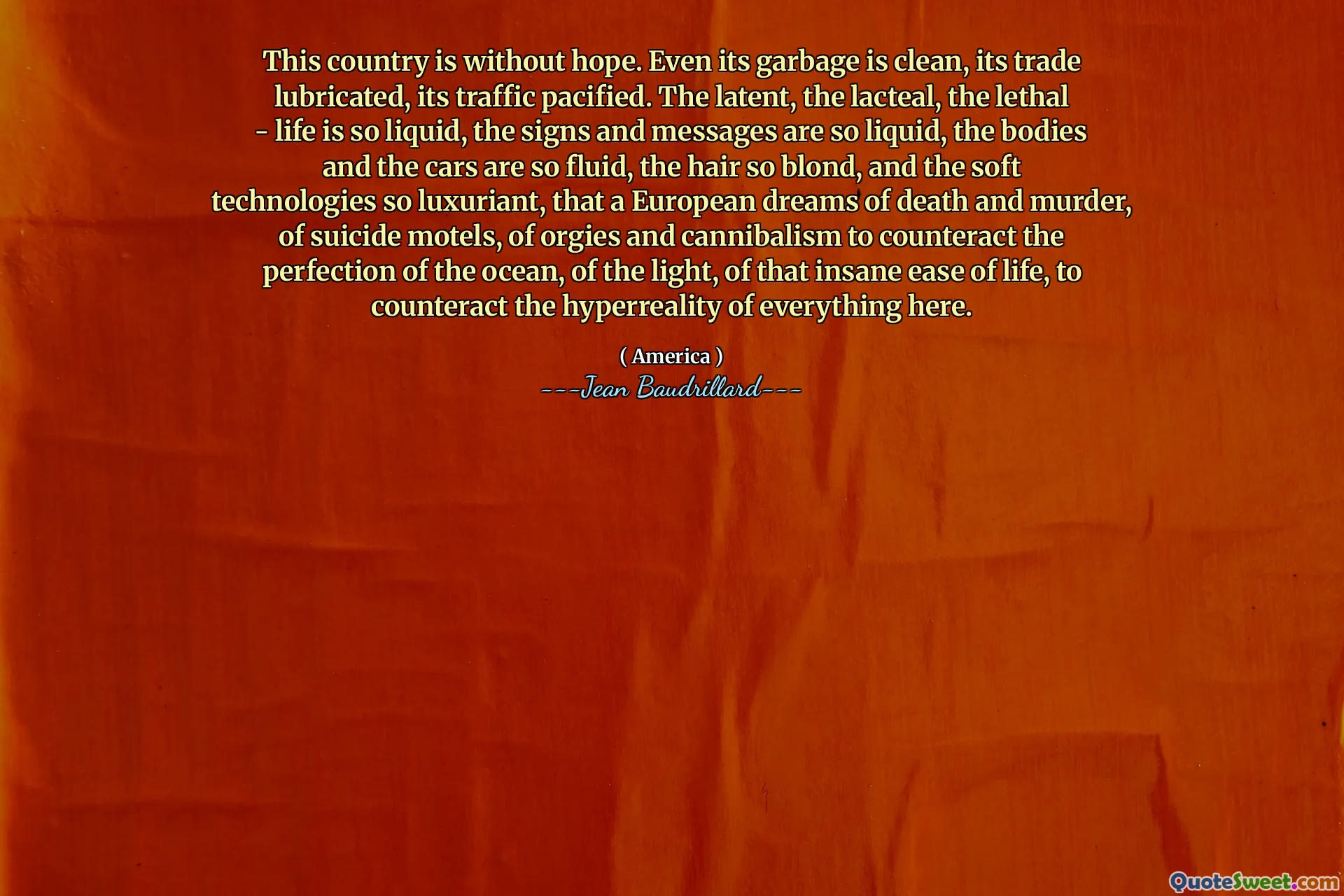
This country is without hope. Even its garbage is clean, its trade lubricated, its traffic pacified. The latent, the lacteal, the lethal - life is so liquid, the signs and messages are so liquid, the bodies and the cars are so fluid, the hair so blond, and the soft technologies so luxuriant, that a European dreams of death and murder, of suicide motels, of orgies and cannibalism to counteract the perfection of the ocean, of the light, of that insane ease of life, to counteract the hyperreality of everything here.
Jean Baudrillard's quote presents a deeply critical and almost surreal depiction of a society characterized by an overwhelming smoothness and artificial perfection. The notion that even something as mundane as garbage is "clean" and that trade and traffic are somehow "pacified" speaks to a state of hypercontrol and artificial harmony. It evokes a world where normal human chaos and disorder have been smoothed over to the point of erasing the vitality, unpredictability, and rawness of life. The use of words like "liquid" and "fluid" to describe life, bodies, and signs suggests an amorphous, ever-changing reality that lacks solidity or depth, contributing to a sensation of superficiality or empty fluidity. Baudrillard's observation touches on the concept of hyperreality—the condition where artificial simulations become more real than reality itself, leading to existential detachment.
The stark contrast between this sanitized perfection and the European dreams of "death and murder, of suicide motels, of orgies and cannibalism" highlights a human craving for extreme experiences as a form of rebellion or escape from this hyperreal pacification. This longing for disorder and even destruction reveals the profound impact that the eradication of conflict and imperfection has on the human psyche. The quote challenges us to reflect on the cultural and social consequences of striving for an excessively controlled and aesthetically flawless environment. Is such perfection truly desirable, or does it stunt the emotional and existential complexity that defines life? In pondering Baudrillard's words, one confronts the paradox of modern existence—the pursuit of ease and order may foster a subtle but deep-seated despair, a loss of authentic vitality amid the endless surfaces and polished facades.






